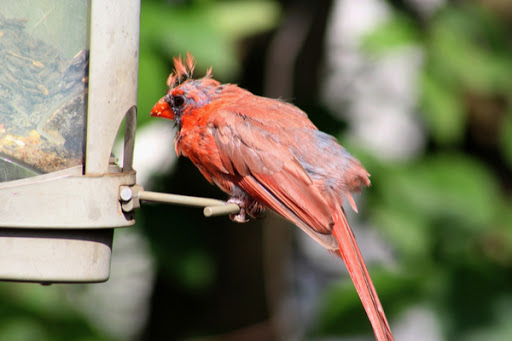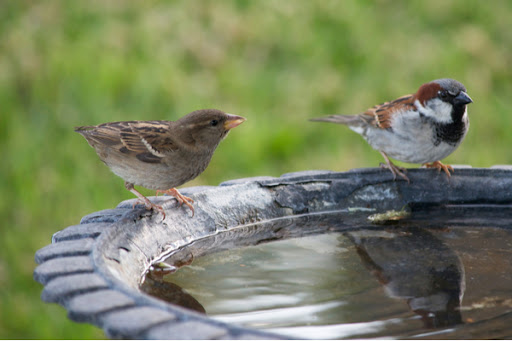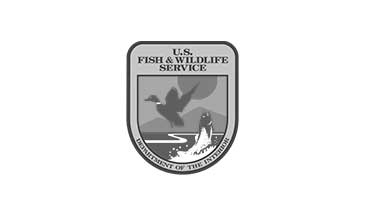Birds are quieter during summer, but that doesn’t mean they’re gone. Songbirds, geese, gulls, woodpeckers, and hummingbirds remain in their spring breeding area. Most molt during summer time to prepare for migration. They hide and rest during the hottest times of the day and forage for food during morning and night.
Birds are less active during summer than they are in spring, but you should still pay attention to them. In fact, bird’s activities now may determine where they decide to nest come next spring. This is everything you should know about the birds near you this summer, including how they might affect you:
What are birds doing this summer?
As spring turns to summer, breeding and rearing season turns to molting season. All birds molt, but they molt at different times according to the demands of their environment. They need to molt to lose their old, often damaged feathers and grow new, lighter feathers they can use during migration. Most birds molt during summer because it helps them stay cool and prepares them for fall migration. When birds molt, they become particularly vulnerable, because they can’t fly as effectively.
You’ve probably noticed that you see fewer birds during summer than you did during spring. Molting birds tend to hide in thick vegetation, secluded, shelter perches, and other shade. Not only does the shade help them stay cool, it also protects them while they molt. Most birds are active in the morning and evening during the summer, especially out in the open. During hot afternoons, they’ll hide in shade or under vegetation.

Which birds am I seeing this summer?
Some migratory songbirds may leave this early in the season, but most will stick around and molt. Warblers, chickadees, robins, goldfinches, sparrows, bluebirds, starlings, doves, mockingbirds, and cardinals will all remain for the summer. Songbirds spend summer hiding in shade and seeking out baths to cool themselves in. Hummingbirds and woodpeckers stick around for the summer too. Woodpeckers may slow their activity a little, but hummingbirds have to remain fully active to satisfy their demanding metabolism. Chimney swifts will beginning their breeding season in the summer months.
If you live in suburban and urban areas, you’re probably accustomed to seeing gulls--even if you live nowhere near water. That won’t change in summer time. Common gulls like the Glaucous-winged gull will remain in our area all summer. Many small, shy birds like catbirds, chickadees, and titmice remain during summer too, though they’ll become even more reclusive. The birds you do see may be more vibrant and easy to spot during the summer, because they’ll have breeding plumage.
Where can I see birds this summer?
When it comes to summer birdwatching, the early bird gets the… bird. If you wake up early enough, you’ll have the chance to glimpse songbirds with their beautiful, colorful mating plumage. These songbirds will remain near the areas where they spend the hotter times of day, but they will come out to forage and collect food for their young. Look for them in shady, overgrown areas off the beaten path. You’ll have more luck near bodies of water!
If you’d like birds to come to you this summer, it’s all about food, comfort, and shelter. Even during the hottest times of year, they never really stop preparing for fall. During molting season, they’re looking for high-sugar foods they can consume for quick energy. Fruit, sugar water, and nectar will help attract hungry birds. Birdbaths will be especially effective for drawing in songbirds. Make sure your birdbath has flowing water, or change it out regularly!

How could summer birds affect me?
Generally, birds become less aggressive, less prevalent, and a lot more reclusive. Sometimes, however, in their attempts to find shade and hide, they might actually come closer to your home. They'll often take shelter in shaded or sheltered areas of standing structures, especially if there’s no other shade nearby. Birds that built nests on your home in spring will remain nearby throughout summer. Many will find your yard and home appealing if its shady and secluded.
Birds on your property this summer aren’t necessarily a problem, but they could still be a nuisance. Most won’t be as loud or territorial as they would be in spring, but they’ll still defend their homes. Likewise, they may not make as big a mess as they would in spring, but their waste could still do damage. The birds that are around your home this summer will likely return next spring to nest. If you don’t deal with possible infestations now, you may have to deal with them year after year.
If you don’t want to deal with bird infestations year after year, now’s the time to act. Give Varment Guard a call any time this summer, and we’ll help bird-proof your property safely and humanely. We can even help prevent birds from nesting near you without keeping them away from your yard. If you need help interacting with birds on your own terms, give Varment Guard a call any time. We’ll make sure your summer doesn’t go “to the birds.”






